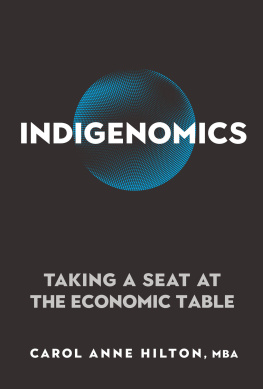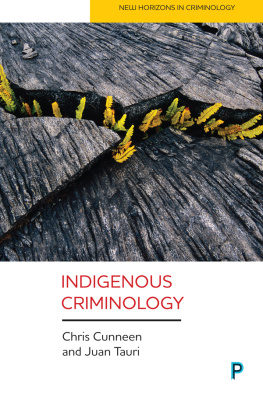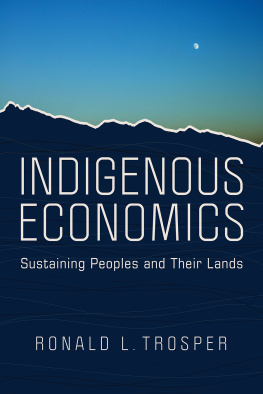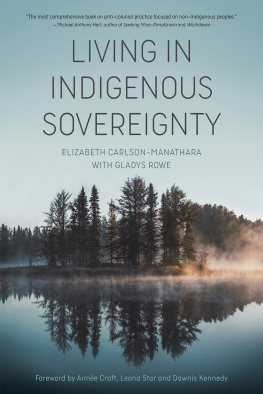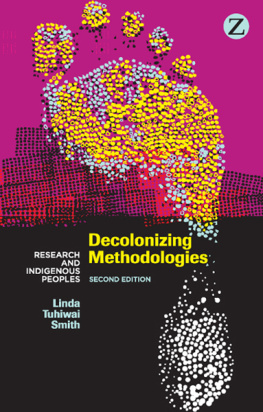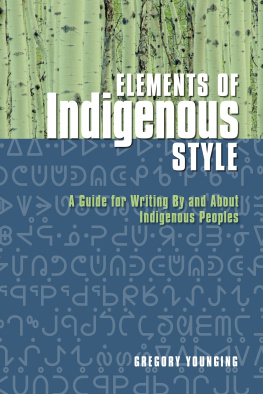Table of Contents
Landmarks
List of Pages
Praise for Indigenomics
Indigenomics is the anti-thesis of Adam Smiths 1776 The Wealth of Nations, which has been the dominant economic theology of free-market capitalism and the codex of colonization. Carol Anne Hilton has authored one of the most important books of our economic era providing a new yet ancient Indigenous framework for building economies of well-being. Indigenomics represents a pragmatic framework for decision making, policy development, monetary policy, and budgeting that places collective economic well-being, relationships, and Indigenous laws at the heart of wise governance. Indigenomics reflects how Canada (Kanata), meaning sacred or pure land, was intended to be prior to colonization. Like The Wealth of Nations, I feel that Hiltons work will shape global economics for many generations.
Mark Anielski, economist and author,
The Economics of Happiness: Building Genuine Wealth and
An Economy of Well-Being: Common-sense Tools
for Building Genuine Wealth and Happiness
This book is well overdue. Hilton is a visionary who situates how and why Indigenous worldviews are important to enhancing the modern economy. Indigenomics provides an anti-colonial lens to reframe narratives about Indi genous entrepreneurship, business leadership, health, and well-being.
Dr. Jacqueline Quinless, Adjunct Professor of Sociology,
University of Victoria
Indigenomics is the concept the world has been waiting for. As the failure of old fashioned linear economic models becomes increasingly evident, Carol Anne Hilton showcases regenerative models based on Indigenous wisdom, both social and spiritualthe economy of consciousness that represent pathways of possibility that are essential if humanity is to survive.
Amanda Ellis, Director, Global Partnerships, Julie Ann Wrigley
Global Futures Laboratory, Arizona State University
A deep bow for Carol Anne Hilton and all the other Indigenous angels of our time! What an inspiring source of wisdom for how to be in the world in the fullness of our humanity. What a powerful guide to building an inclusive economy and serving a new balance between the souls of all living creatures, economics, and nature.
Ivo Valkenburg, co-founder New Financial Activators
Carol Anne Hiltons writing tells an intergenerational narrative, from an Indigenous economy, to the rise of Wiindigo Economics, and to the resurgence of Indigenous. Her analysis illustrating the foundational differences between Industrial and Indigenous economics is insightful and clear, allowing a reader to contemplate what are more than surface differences. Hiltons work reaffirms the significance of relationship economics, AKA to be just and fair to all the relatives, and the centrality of Indigenous thinking to the next economy, the one we must restore and createthe green pathas opposed to the scorched path. Her words clearly illustrate that Indigenomics is the path for the future. As we move through the portal of this time, knowing that pandemics change our world, lets walk through to a path of restorative economics, founded on land, spirit, and the reality of Mother Earths wealth, which is our responsibility to acknowledge and respect. Her book is essential core material for the next class of economists. The time of Keynesian economic analysis has passed, along with the empire. The time of cooperation is here.
Winona LaDuke, executive director, Honor the Earth
Immense gratitude for Indigenomics. With our world in crisis, Carol Anne Hilton shows us how to view economic and social values through an Indigenous lens. For thousands of years First Nations people have held the knowledge of the ancestors and the great laws of nature, which govern all life. With this deep understanding and masterful rigor, Carol Anne takes us step by step across a bridge to the future, where economics, productivity, and prosperity are guided by the innate and universal values of our humanity, which is one with all creation.
Tracey Anne Cooper, creator and producer,
Beyond Crisis Webinar Series
In the tradition of an economic philosopher Ms. Hilton has read the times in which we live in and is reframing the dialogue on nation building with Indigenous Peoples place at the economic tableadvancing Indigenous worldviews, human values, and relationships as new constructs for change. Now it is our collective responsibility to advance meaningful employment and economic inclusion strategies, and outcomes.
Kelly J Lendsay, President and CEO, Indigenous Works
INDIGENOMICS
INDIGENOMICS
TAKING A SEAT AT THE ECONOMIC TABLE
CAROL ANNE HILTON, MBA

Copyright 2021 by Carol Anne Hilton. All rights reserved.
Cover design by Diane McIntosh.
Cover image: iStock.
Printed in Canada. First printing March, 2021.
Inquiries regarding requests to reprint all or part of Indigenomics should be addressed to New Society Publishers at the address below.
To order directly from the publishers, please call toll-free (North America) 1-800-567-6772, or order online at www.newsociety.com
Any other inquiries can be directed by mail to:
New Society Publishers
P.O. Box 189, Gabriola Island, BC V0R 1X0, Canada (250) 247-9737
LIBRARY AND ARCHIVES CANADA CATALOGUING IN PUBLICATION
Title: Indigenomics : taking a seat at the economic table / Carol Anne Hilton, MBA.
Names: Hilton, Carol Anne, 1975 author.
Description: Includes bibliographical references and index.
Identifiers: Canadiana (print) 20200398083 | Canadiana (ebook) 20200399098 | ISBN 9780865719408 (softcover) | ISBN 9781550927337 (PDF) | ISBN 9781771423298 (EPUB)
Subjects: lcsh: Indigenous peoples Canada Economic conditions. | csh: Indigenous business enterprises Canada. | csh: Indigenous businesspeopleCanada.
Classification: LCC e98.b87 h55 2021 | DDC 338.7089/97071 dc23
New Society Publishers mission is to publish books that contribute in fundamental ways to building an ecologically sustainable and just society, and to do so with the least possible impact on the environment, in a manner that models this vision.

New Society Publishers mission is to publish books that contribute in fundamental ways to building an ecologically sustainable and just society, and to do so with the least possible impact on the environment, in a manner that models this vision.

Acknowledgments
I bring to this space special acknowledgments and gratitude. For my daughter, Cecelia Ambrose, the light of my life, thank you for helping me to change the story. We did it together. For my late mother, you are everything. For my Grams, Dolores Bayne, thank you for always telling the stories of the old ways. They help me to remember. Thank you to my Uncle Joe Tom; thank you for your wisdom, teachings, and the beautiful skill of always focusing on the human and spiritual side. This travels with me wherever I go in this world. To my mentor and friend, the late Richard Wagamese, for helping me to understand my own ability to create, for teaching me how to stay in the zone, to release the doubt, and to stay curious. God speed.

